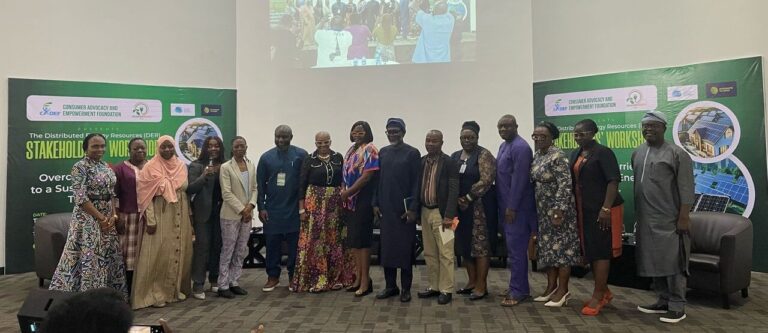….CADEF unveils platform for DER
As the Consumer Advocacy and Empowerment Foundation (CADEF) launches its ‘Renew Energy Nigeria’ platform to accelerate the adoption of decentralized renewable energy (DER), Nigeria stands at a critical juncture in its energy future, facing both significant challenges and promising opportunities.
Professor Chiso Ndukwe-Okafor, CADEF’s Executive Director, highlighted the potential of the new platform to democratize access to clean energy solutions. “The launch of this platform marks a significant step towards democratizing access to information and resources within Nigeria’s burgeoning sustainable energy sector…” The platform aims to connect consumers with verified vendors and provide crucial educational resources.
However, Professor Ndukwe-Okafor also pointed to considerable obstacles hindering widespread adoption. “The recent federal plan on restrictions on the importation of solar products and the fluctuation of forex rate have made clean energy solutions costly for both vendors and energy users. The average Nigerian wants solar but can’t afford it. The average vendor wants to serve, but supply chain issues block their way.”
Despite these challenges, the workshop also illuminated growing momentum and opportunities, particularly at the state level. Kamaldeen Abiodun-Balogun of the Lagos State Electricity Board (LSEB) outlined the state’s proactive policy measures to create a functional electricity market and attract private investment in underserved areas. “Private sector will move in, invest in those areas and ensure there’s a reliable and sustainable power supply, and they will be paid through the tariff,” he stated.
Segun Adaju, a private sector player, emphasized Lagos State’s leadership as a positive signal for the industry. “In all these, Lagos State is always setting the pace.”
Adaju highlighted Lagos’s unique position with two strong Discos and its potential to address the illiquidity plaguing the national grid. “If payments are properly made for electricity, then Discos get paid. The issue of estimated billing without metering will also not happen,” he asserted. He also mentioned his involvement in developing a framework for the Lagos State government called the Centralized Renewable Energy Desk, aimed at bringing energy access to underserved areas.
The socio-economic imperative for improved energy access was underscored by Olumide Ajayi. “Over 40% of Nigerians do not have access to reliable electricity… we cannot end poverty without energy.”
Professor Ndukwe-Okafor concluded by emphasizing the need for a collaborative and inclusive approach to realize Nigeria’s renewable energy potential, with the ‘Renew Energy Nigeria’ platform serving as a key enabler. “Let us democratize clean energy. Let us make it local, inclusive, and scalable.



